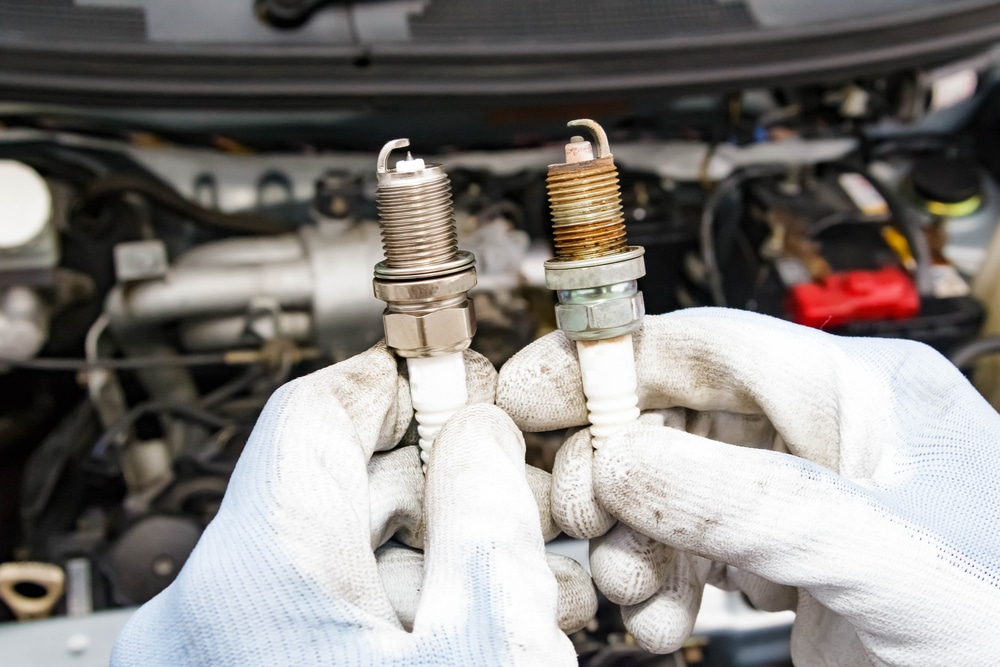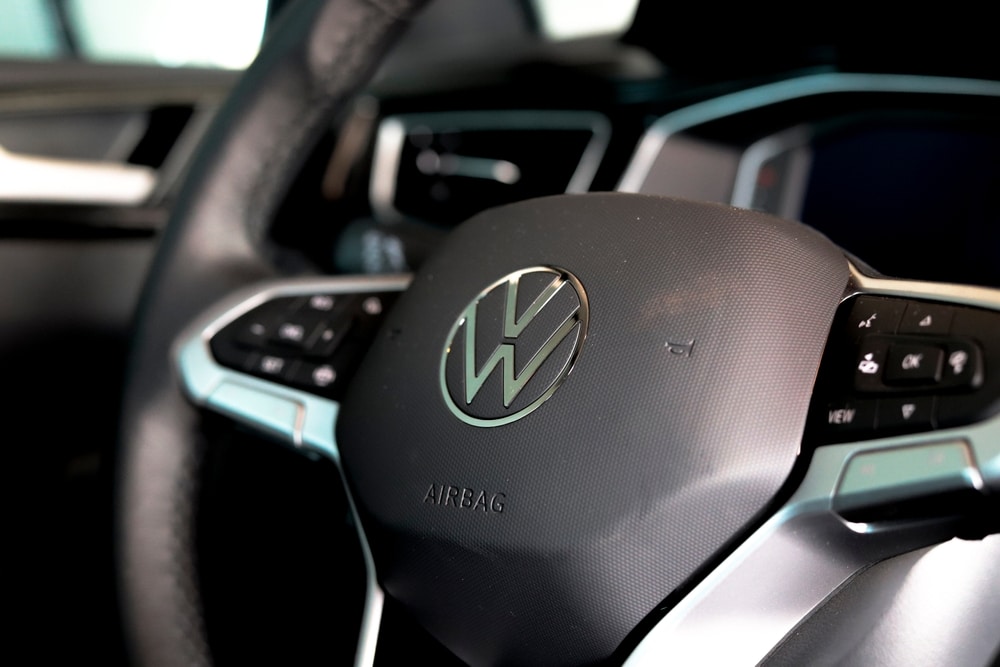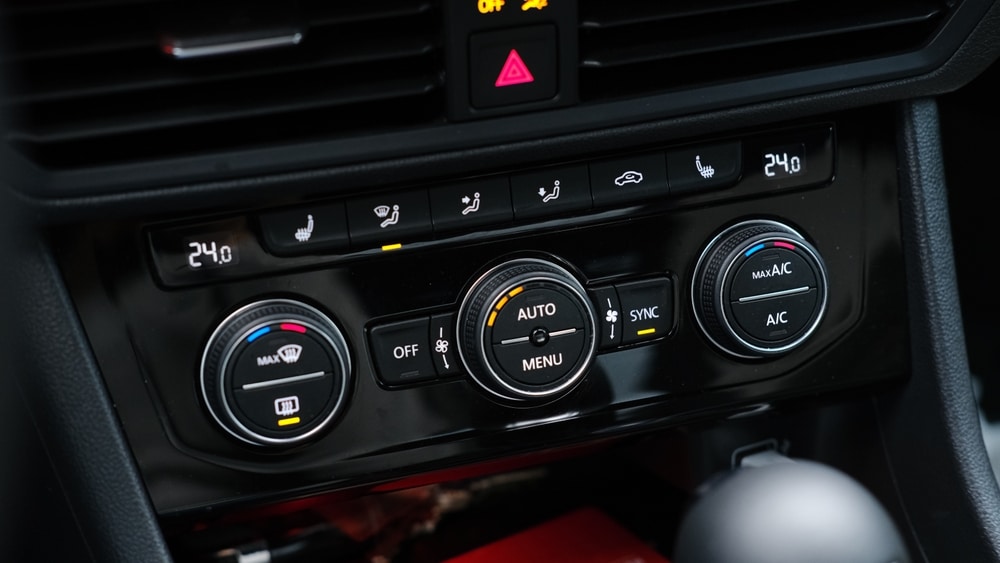Spark Plugs
Your engine misfired. Again. On the motorway in the rain. Overtaking a lorry. Terrifying.
The culprit? A spark plug you neglected for too long. The cost to repair? Staggering.
These tiny components, barely the size of your thumb, make all the difference between an engine that purrs contentedly and one that leaves you stranded on the roadside. They create the essential spark that keeps everything functioning properly.
When was the last time you gave yours a moment’s thought?
Read on to discover why these small parts matter far more than most drivers realise.
What Spark Plugs Do
Your vehicle’s engine contains numerous components that must work in perfect harmony. At the heart of this operation is the spark plug – a seemingly simple device that generates thousands of vital sparks every minute to continuously ignite the air/fuel mixture in your engine’s combustion chamber.
Despite their modest size, spark plugs are essential for your petrol engine’s operation. They sit in the cylinder head of your engine, screwed into the top of each cylinder. In a four-cylinder engine, you’ll find four spark plugs; in a six-cylinder engine, there will be six, and so on. (Though there are exceptions – some modern engines use dual-spark technology with two spark plugs per cylinder.)
Think of spark plugs like the igniter on your kitchen gas hob. Each time you turn on the burner, the igniter creates a small spark to light the gas. Spark plugs function similarly in your engine, except each one must fire thousands of times every minute. If these sparks don’t occur at precisely the right moment, your fuel/air mix won’t ignite, your pistons won’t move, and your engine simply won’t function.
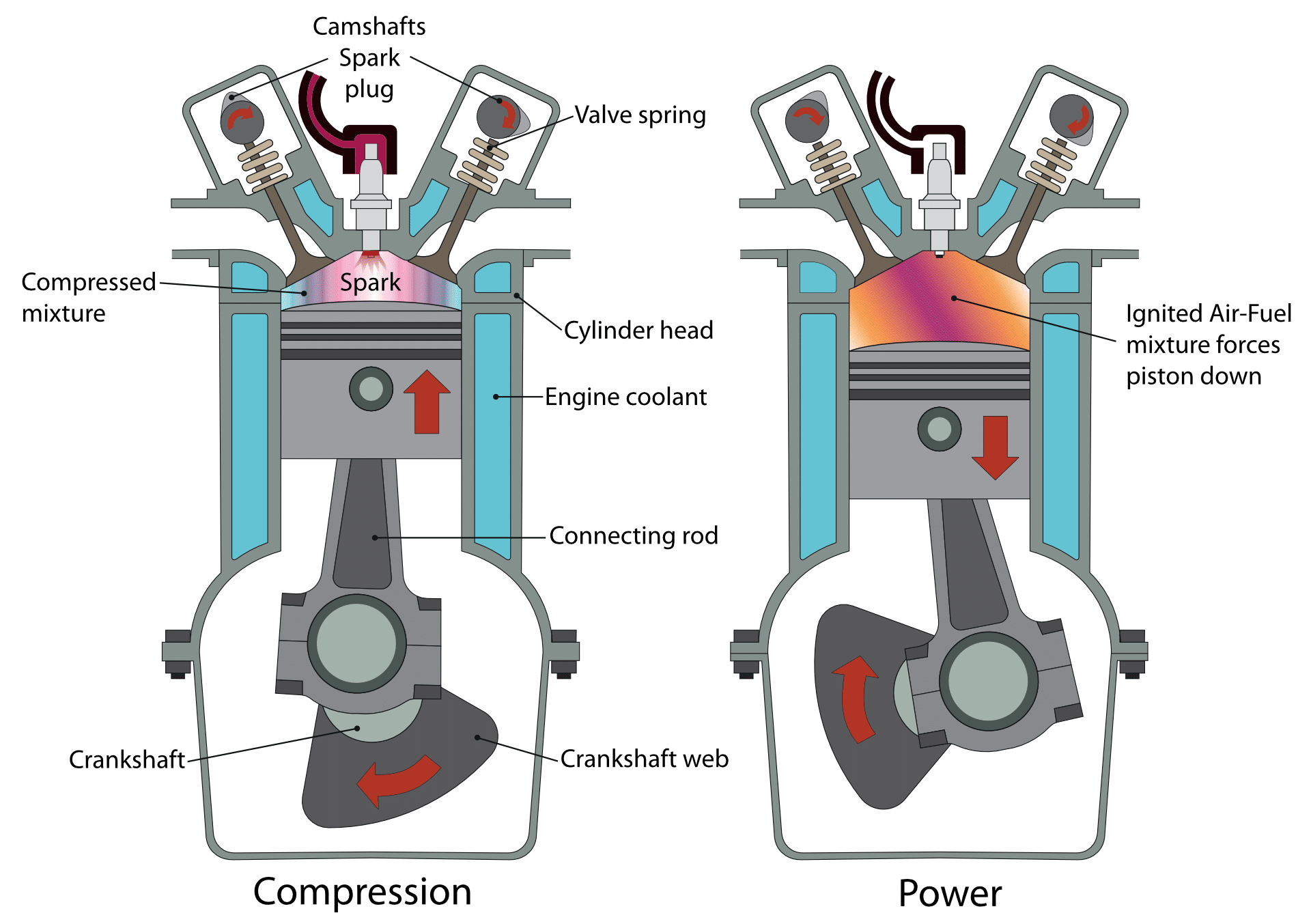
The Right Spark Plug for Your Vehicle
You can’t simply install any spark plug in your engine and expect it to work correctly. Your vehicle was designed to work with a specific type of spark plug, and using the incorrect one can lead to significant problems.
These are some key differences:
- Design Variation: Spark plugs are engineered with precise measurements suited to particular engines. The thread diameter, electrode configuration, and how deeply the electrode tip extends into the combustion chamber (the reach) are all carefully calculated. These specifications ensure optimal combustion and heat dissipation for your specific engine.
- Material: The electrode in a spark plug can be made of different conductive materials – typically copper, platinum or iridium. Performance varies between these options. Copper plugs offer excellent conductivity but need replacing more frequently. Platinum versions provide better longevity and premium iridium plugs last the longest of all the options.
- Heat Range: Understanding a spark plug’s heat range is crucial yet often overlooked. This rating indicates how efficiently the plug transfers combustion heat away from its tip. Selecting the incorrect heat range can result in anything from sluggish acceleration to serious engine and catalytic converter damage. That’s why we stick with what your manufacturer recommends.
Vehicle manufacturers specify the exact type of spark plug your engine needs based on extensive testing. At Fitch Autos, we only fit manufacturer-specified, high-quality (OEM) parts.
(OEM stands for Original Equipment Manufacturer. When it comes to vehicle parts, this means the parts are made by the same company that produced the original parts for the vehicle manufacturer)
Getting the correct spark plugs is only half the battle. How they’re fitted matters just as much. Get it wrong, and you’ll have engine troubles, poor performance, and a repair bill that could make your eyes water.
Not sure which type of spark plug your vehicle needs? Contact us for assistance on 01543 452630!
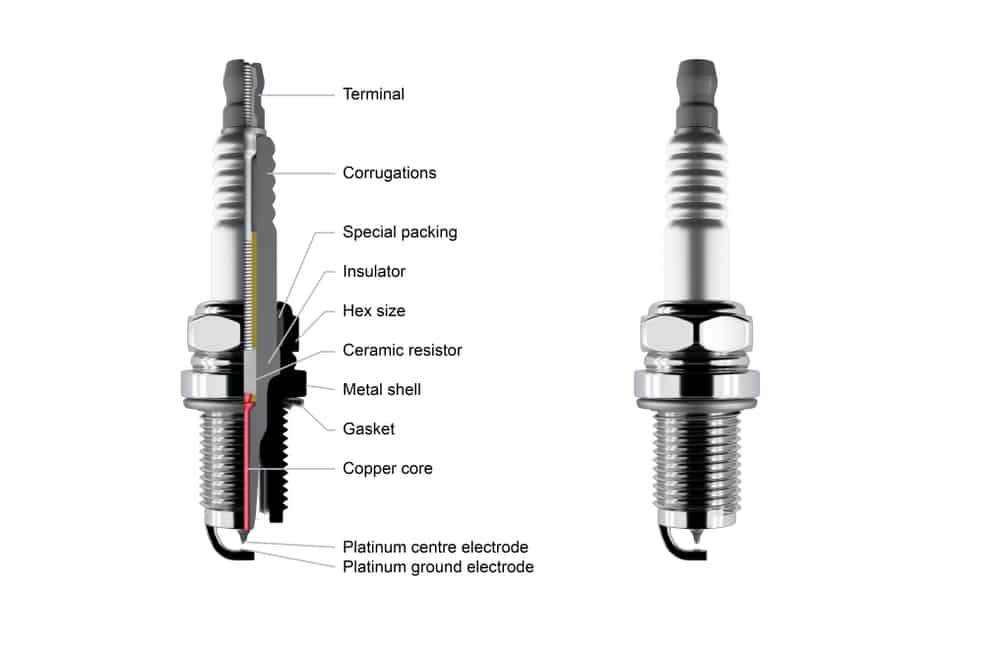
Factors Affecting Your Spark Plugs’ Performance
Several things determine how long your spark plugs will last and how well they’ll perform during their service life:
- Engine Conditions: Your engine’s overall health directly impacts spark plug longevity. Oil seepage into the combustion chamber, incorrect air-fuel ratios, or cooling system faults don’t just harm your engine, they significantly reduce spark plug effectiveness. Regular maintenance of all engine systems ensures your spark plugs deliver optimal performance throughout their lifespan.
- Driving Patterns: Your driving routine dramatically affects spark plug wear. Frequent short journeys (where the engine never reaches optimal temperature) can force it to run fuel-rich, leading to the accumulation of carbon deposits. These deposits reduce effectiveness, leading to misfires, rough idling, and decreased fuel economy. Whenever practical, combining multiple short trips into longer drives can help to maintain effective combustion cycles and will extend the life of your spark plugs.
- Fuel Selection & Additives: The quality of fuel you choose directly impacts spark plug condition. While UK petrol standards are generally high, some brands contain fewer cleaning additives than others, potentially leading to carbon buildup. Performance vehicles particularly benefit from higher-octane fuels that help maintain cleaner combustion chambers and protect spark plug functionality. Help minimise harmful deposits by using quality fuel and this will extend the working life of these critical components.
- Heat Range: Operating temperature is crucial for spark plug functionality; they shouldn’t run too cool or too hot. Plugs operating below optimal temperature can accumulate carbon build-up, while those running too hot might cause pre-ignition that damages engine components. Vehicle manufacturers invest significant resources in determining the exact plug your vehicle needs, which is why we never deviate from their guidelines.
Warning Signs of Failing Spark Plugs
Even though they are modest in size, failing spark plugs can cause some noticeable problems. Here’s what to look out for:
- Starting Difficulties: If you find your vehicle increasingly reluctant to start, particularly in colder weather, worn spark plugs may be struggling to generate an adequate spark. This symptom typically worsens gradually until eventually, the engine fails to start altogether.
- Performance Deterioration: Degraded spark plugs can cause noticeable changes in how your vehicle drives. Acceleration may become hesitant, with momentary power losses or you could experience ‘rough idling’. Fuel consumption often increases as the engine compensates for incomplete combustion cycles too. Left unaddressed, these misfires can damage your catalytic converter, transforming a simple maintenance issue into a costly repair.
- Check Engine Light Activation: Modern vehicles have sophisticated engine management systems that continuously monitor combustion efficiency. When spark plugs fail to properly ignite the air-fuel mixture, these systems may illuminate the check engine warning light, alerting you there’s a problem.
It’s worth noting these symptoms often mimic other potential issues, making accurate diagnosis challenging. If you notice any of these warning signs, contact Fitch Autos on 01543 452630 rather than risking a breakdown.
Our Spark Plug Replacement Process
Spark plug replacement needs specialised tools, technical expertise, and attention to detail.
Accessing these components typically requires removing the protective engine cover and using a spark plug socket tool to carefully extract each plug.
Before fitting replacement plugs, we’ll ensure that they match the manufacturer’s specifications. We meticulously clean the surrounding areas to prevent debris from entering the cylinder – a precaution that prevents potential engine damage. We initially thread each plug by hand to eliminate cross-threading risks, then tighten to the manufacturer-specified torque setting. Finally, we run the engine to verify it’s performing as it should be.
Without professional expertise, numerous complications can arise:
- Cross-threading during installation risks expensive cylinder head damage
- Incorrect torque may lead to compression leakage or thread damage
- Seized plugs can break, leading to specialist extraction being needed
- Contamination during installation introduces dirt into the cylinder
- Using incorrect plugs can cause potential engine or catalytic converter damage.
Fitch Autos technicians bring extensive model-specific experience to every spark plug replacement.
We exclusively use manufacturer-approved components and regularly calibrate our torque wrenches to ensure precise installation. This approach ensures your vehicle leaves our Brownhills garage running in peak condition.
Take Action Before Your Spark Plugs Fail
Some motorists are tempted to delay replacing parts until absolutely necessary. But when it comes to spark plugs, this approach creates significant risks. What appears as a minor cost-saving measure today often transforms into substantial expense and inconvenience later – typically at the worst moment!
When Should You Replace Your Spark Plugs?
Replacement intervals vary significantly depending on the specific spark plug you have:
- Copper-core variants are an economic option, but their electrode deteriorates faster than other options, so need changing more frequently
- Platinum-tipped models are a good mid-range option, lasting longer than copper counterparts
- Iridium-tipped plugs give you maximum lifespan, justifying their higher cost
While these differences exist, it’s important to understand that you don’t really have a choice in which plug you select. Vehicle manufacturers state which specific plug type you should use and not following the recommendation risks performance problems and potential engine damage.
Following manufacturer-recommended replacement schedules isn’t merely suggested maintenance, it’s essential if you don’t want to face significant issues and repair bills. At Fitch Autos, we strictly adhere to manufacturers’ recommendations so your car is properly taken care of. It’s a risk that’s just not worth taking!
Dispelling Common Spark Plug Myths
Throughout our years serving Brownhills and surrounding areas, our technicians at Fitch Autos have encountered a few misconceptions about spark plugs. Here are some examples:
“If one spark plug is bad, only that one needs replacing.”
This seemingly economical approach inevitably leads to repeated garage visits and unnecessary expenditure. Spark plugs deteriorate at roughly similar rates, meaning when one fails, its counterparts are likely approaching the same fate. Vehicle manufacturers advise you to replace a complete set precisely for this reason. Changing the complete set will save you time and money in the long run.
“All spark plugs are the same.”
This misconception overlooks the crucial differences outlined in this blog. Spark plugs come in numerous types (copper, platinum, iridium) with varying heat ranges and electrode designs specifically made for your engine. Installing an incorrect spark plug can compromise performance, reduce fuel efficiency, and lead to potential engine damage. Manufacturers specify particular plug types for good reason – they match the compression ratio, combustion chamber design, and operating temperature required.
“Modern spark plugs last forever.”
This assumption is false and can lead many drivers to neglect essential maintenance. While contemporary spark plugs certainly outlast previous generations, they remain components that are subject to deterioration. Continuous firing of sparks, extreme temperature fluctuations, and combustion byproducts all gradually erode the electrode. Even premium iridium plugs eventually wear down. Stick to manufacturer-specified replacement intervals; it’s the best way to ensure your car’s ongoing reliability.
“Spark plugs only affect starting the engine.”
Some drivers mistakenly believe spark plugs only contribute during engine startup. In reality, these components continue to function throughout your journey. They deliver precisely timed sparks hundreds of times per minute during normal driving.
Final Advice: Don’t Guess, Check!
When it comes to spark plugs, being proactive is much better than being reactive. Don’t be someone who learns the hard way once your engine is damaged and the repair bill is high!
Our preventative approach at Fitch Autos has built us a great reputation throughout the Wolverhampton area. We have:
- A {{average-rating}} star Google rating backed by {{review-count}} verified customer reviews
- Comprehensive 12-month parts and workmanship guarantees on all spark plug replacements
- Investment in specialised equipment for precise spark plug maintenance
- Guaranteed use of manufacturer-specified or premium OEM replacement components
- Recognised for providing outstanding value and transparent pricing
Our dedicated technical team consistently delivers exceptional service by prioritising your vehicle’s reliability, your safety on West Midlands’ challenging roads, and your long-term peace of mind.
Why risk engine performance and reliability? Contact our Brownhills garage today on 01543 452630. Our knowledgeable specialists are ready to provide straightforward advice that keeps your vehicle running at its best for miles to come.
Call now 01543 452630Save on servicing
